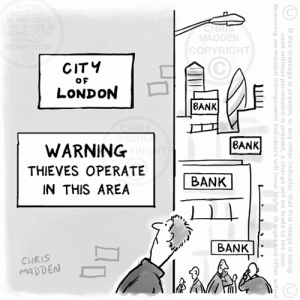‘A good way to show solidarity with Greece is to tackle austerity in your own country.’
Syriza member speaking on a panel at a Global Justice Now event in London, earlier this year.
By Steve Rushton
Greeks are at the polls today, deciding whether to vote #Oxi (No) against the Troika that is crippling the country with debt repayments, or to give in to the “terrorism” of the mainstream media campaign and vote Nai (Yes) to the Troika terms.
The corporate media fear campaign echoes the Scottish referendum, with “Project Fear” informing the people of Greece ‘There is no alternative’. Suggesting a no vote will spell disaster. Telling Greeks they must drink the same poison of cuts, austerity and debt repayments: even though this is killing Greek Society.
Whatever the outcome, that Greece has called a referendum is monumental. Despite the immense pressure – from the EU, its creditors, international finance, corporate media – the conversation around debt and austerity has moved even further out into the open. More and more people in Greece and across Europe understand that Greek society did not create these debts, they were the result of financialisation, elite corruption (inside and outside the country), dodgy deals, private banking failures and structural problems in the Eurozone.
That a referendum was called at all stands on the shoulders of the Greek debt audit campaign. It started as a citizens debt audit, through research and grassroots activism, exposing why Greece is in the current situation and most importantly, spreading the message across society that we ‘Don’t owe: Won’t pay’.
During the first 5 months of the Syriza government, this process moved from a citizens led movement to an official Debt Committee instigated by the Greek Parliament. The Truth Committee on Public Debt’s initial report, released mid-June, found that Greece’s debt is illegitimate and illegal.
These findings are a legal framework to refuse to repay the unjust debts. A similar debt audit commission enabled Ecuador to write down its debts in 2008. It then was able to shift money away from international capitalists and use the money for health, schools and welfare.
In Britain and across Europe we are also undergoing austerity and cuts, these are also impoverishing the many to enrich the elites, albeit at a slower pace of devastation than is happening in Greece. As Greece, Ecuador and other countries of the Global South who were ravaged by debt show, a debt audit process is one of the most effective methods to analyse what debt should be cancelled, whilst building public pressure so business as usual cannot continue.
In Britain, we are in strong need of a debt audit. Not least given London’s central role within the global financial system that syphons money to the 1%. Britain needs a campaign to look at what the government spent the nation’s money on. Asking whether the bank bailouts, quantitative easing, PFI contracts and other financial deals were really in the public interest.
On Monday night, the issues of Britain’s unjust debts will be aired on Channel Four Dispatches. The programme is focussing on Debt Resistance UK’s ongoing research into LOBO loans to local authorities.
It reveals that banks have unfairly made £billions in profit from local councils via shady LOBO loans. With interest rates lower than ever, the councils have been given loans by RBS with low teaser rates that end up costing as much as 8% interest per year, locked into the loans for 70 years, when councils could otherwise borrow from Government at less than 4%.
This means that councils will have to make cuts, with the council’s money syphoned off into banker’s profits. What is striking is that local British councils and the Greek sovereign state have been swindled in the same manner, in simple terms because through deregulation and arbitrary limits on central government borrowing, bankers and financiers have made vast profits at the societies’ expense.
What makes this even more disturbing is that some of the banks were bailed out by the British state: talk about eating the hand that feeds you.
For more information on how LOBO loans are enabling big finance to rip off our councils please visit our Local Authority Debt Audit site.
The Local Authority debt audits aims is to demonstrate how Local Government finance has been co-opted to work in the interests of the private sector, and not in the interests of the people. This is not an attack on Local Government, but an attempt to reclaim our democratic institutions and the common resources they manage from the powerful clutches of the City of London. To do so, we must understand how our public bodies and the financial system function and how they interact.

